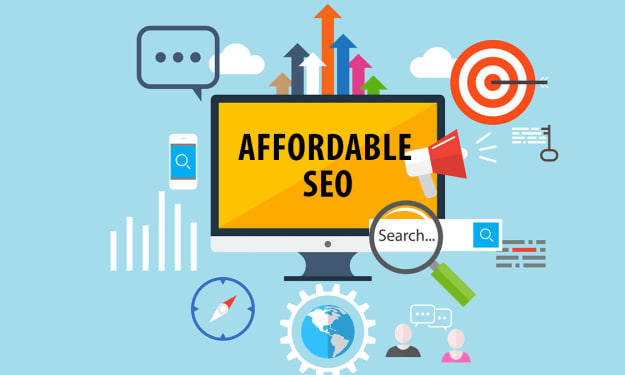IoT Integration with Cloud Enterprise Services
Enhancing Connectivity and Data Processing

The Internet of Things (IoT) has revolutionized industries by enabling interconnected devices to collect and exchange data autonomously. This influx of data presents both challenges and opportunities for businesses seeking to leverage IoT to improve operations, enhance customer experiences, and drive innovation. Cloud enterprise services play a crucial role in facilitating IoT deployments by providing scalable infrastructure, robust data management capabilities, and advanced analytics. This article explores how IoT integration with cloud enterprise services transforms industries, enhances connectivity, and optimizes data processing.
Understanding IoT and its Impact
IoT refers to a network of physical devices, vehicles, appliances, and other objects embedded with sensors, software, and connectivity capabilities to collect and exchange data over the internet. These devices generate vast amounts of data, offering valuable insights into operations, consumer behavior, and environmental conditions. However, managing and extracting meaningful insights from this data requires scalable and efficient computing infrastructure—where cloud enterprise services excel.
Benefits of Integrating IoT with Cloud Enterprise Services
Scalable Infrastructure: Cloud enterprise services provide scalable computing resources that accommodate fluctuating IoT data volumes. Whether handling a few connected devices or millions, cloud platforms like AWS, Microsoft Azure, and Google Cloud offer elastic scalability, ensuring seamless operations without upfront investment in additional hardware.
Data Storage and Management: IoT generates massive datasets that must be stored securely and accessed in real-time. Cloud services offer scalable and durable storage solutions, such as object storage and databases (e.g., Amazon S3, Azure Blob Storage), optimized for handling IoT data streams. These platforms facilitate data aggregation, cleansing, and integration across disparate sources, supporting comprehensive analytics and insights.
Real-time Data Processing: IoT applications often require real-time data processing to enable timely decision-making and automated responses. Cloud services provide compute instances and serverless architectures (e.g., AWS Lambda, Azure Functions) capable of processing data streams with minimal latency. This capability is crucial for applications like predictive maintenance, remote monitoring, and real-time asset tracking.
Advanced Analytics and Machine Learning: Cloud platforms integrate advanced analytics and machine learning (ML) tools that enhance IoT data processing. ML algorithms can analyze historical and real-time data to predict trends, detect anomalies, and optimize operations. For example, predictive maintenance models can forecast equipment failures based on IoT sensor data, enabling preemptive repairs and minimizing downtime.
Security and Compliance: IoT devices are vulnerable to cyber threats, requiring robust security measures to protect data integrity and user privacy. Cloud enterprise services implement stringent security protocols, encryption standards, and compliance certifications (e.g., GDPR, HIPAA) to safeguard IoT deployments. Centralized monitoring and identity management tools ensure authorized access and proactive threat detection across interconnected devices.
Use Cases of IoT Integration with Cloud Enterprise Services
Smart Cities: Municipalities integrate IoT sensors with cloud services to monitor traffic flow, manage public utilities, and improve emergency response. Cloud platforms aggregate data from smart devices (e.g., traffic cameras, environmental sensors) to optimize city operations and enhance citizen safety.
Industrial IoT (IIoT): Manufacturing facilities leverage IoT sensors for real-time equipment monitoring and predictive maintenance. Cloud enterprise services enable continuous data streaming, analysis, and integration with enterprise resource planning (ERP) systems to optimize production efficiency and reduce downtime.
Healthcare: IoT-enabled medical devices transmit patient health data to cloud platforms securely. Healthcare providers utilize cloud analytics to monitor patient conditions remotely, personalize treatment plans, and improve clinical outcomes through timely interventions.
Retail and Consumer Goods: Retailers deploy IoT sensors in stores and warehouses to track inventory levels, monitor consumer behavior, and optimize supply chain operations. Cloud-based analytics enable retailers to predict demand trends, personalize marketing campaigns, and enhance customer experiences.
Challenges and Considerations
Data Privacy and Security: Securing IoT data throughout its lifecycle—from collection and transmission to storage and analysis—is paramount. Cloud enterprise services implement encryption, access controls, and compliance frameworks to mitigate risks associated with data breaches and regulatory non-compliance.
Interoperability: IoT ecosystems often comprise diverse devices and protocols, posing interoperability challenges. Cloud platforms support integration with IoT gateways and protocols (e.g., MQTT, CoAP), facilitating seamless communication and data exchange across heterogeneous environments.
Scalability and Performance: Managing scalability requirements and ensuring consistent performance across geographically dispersed IoT deployments demand robust cloud infrastructure and network optimization strategies. Cloud services offer global data centers, content delivery networks (CDNs), and edge computing capabilities to minimize latency and enhance responsiveness.
Future Trends and Innovations
Edge Computing: Edge computing complements cloud services by processing IoT data closer to the source (e.g., devices, sensors), reducing latency and bandwidth usage. Cloud providers integrate edge computing solutions to support time-sensitive applications and deliver real-time insights at the network edge.
5G Integration: The rollout of 5G networks enhances IoT connectivity, enabling high-speed data transmission and supporting mission-critical IoT applications. Cloud enterprise services leverage 5G infrastructure to accelerate IoT deployments, improve scalability, and unlock new use cases in sectors like autonomous vehicles and smart cities.
Conclusion
Integrating IoT with cloud enterprise services revolutionizes industries by unlocking actionable insights, enhancing operational efficiency, and driving innovation. From scalable infrastructure and real-time data processing to advanced analytics and stringent security measures, cloud platforms empower businesses to harness the full potential of IoT deployments. As IoT continues to evolve, collaboration with experienced cloud service providers becomes crucial for navigating complexities, maximizing ROI, and achieving sustainable growth in the digital era. Embracing IoT integration with cloud enterprise services positions organizations at the forefront of technological advancements, poised to capitalize on emerging opportunities and deliver value-driven solutions in an interconnected world.
About the Creator
Enjoyed the story? Support the Creator.
Subscribe for free to receive all their stories in your feed. You could also pledge your support or give them a one-off tip, letting them know you appreciate their work.





Comments
There are no comments for this story
Be the first to respond and start the conversation.